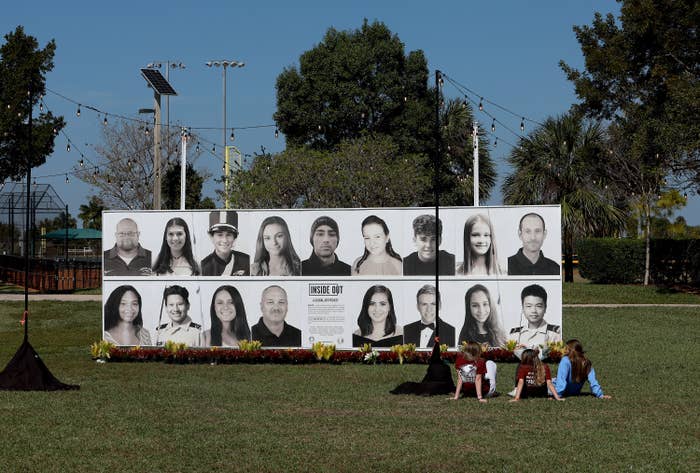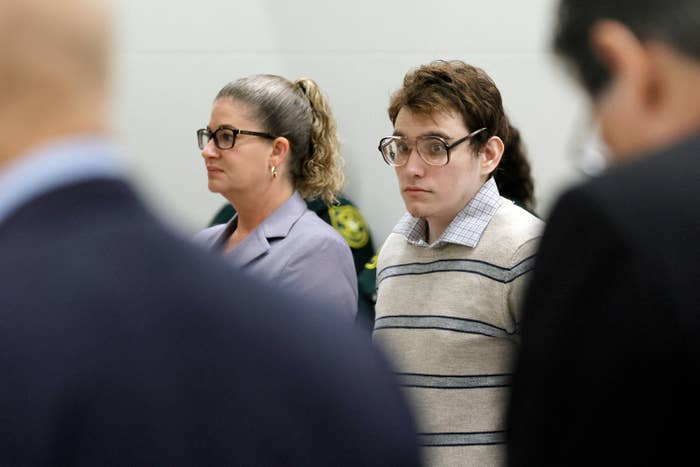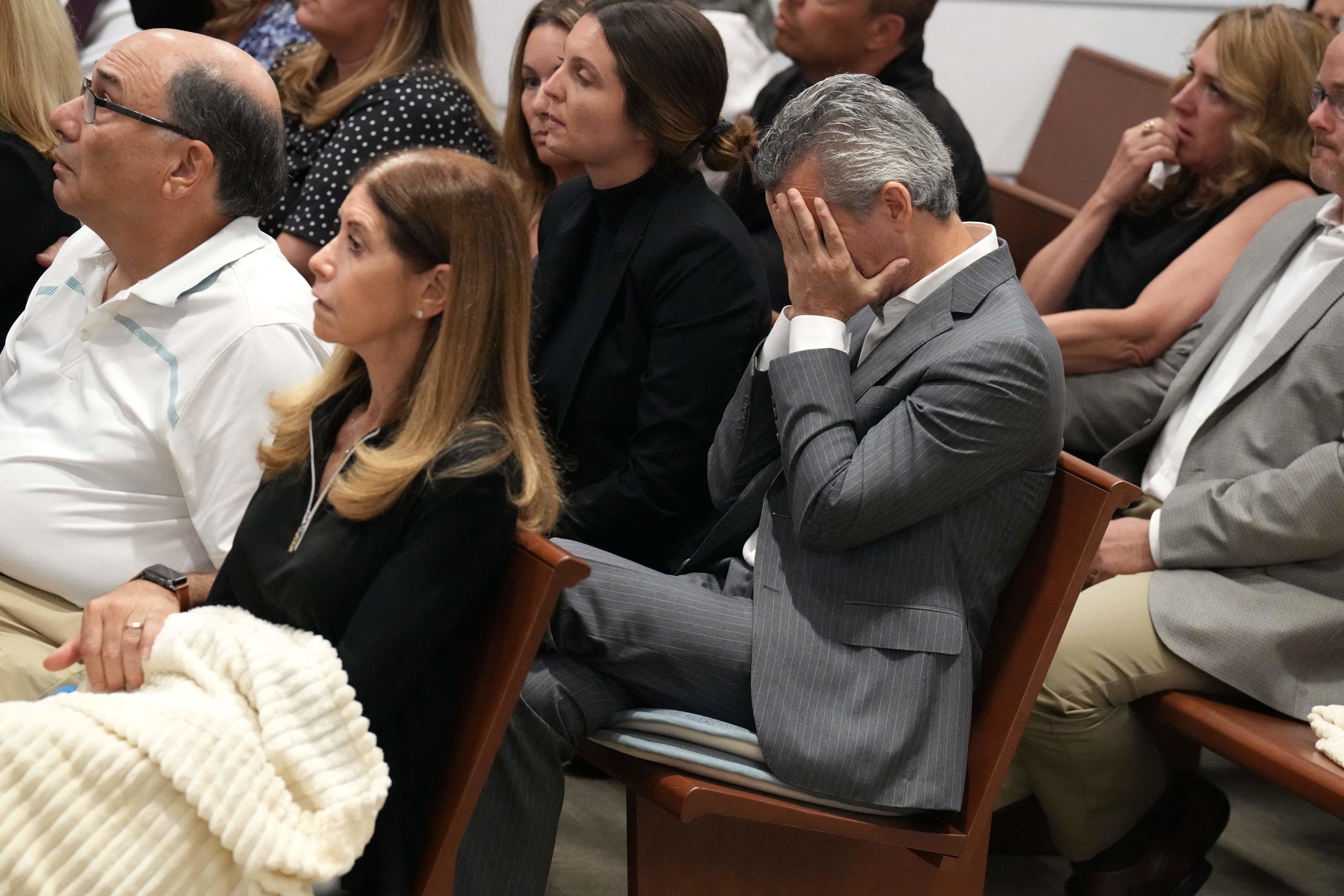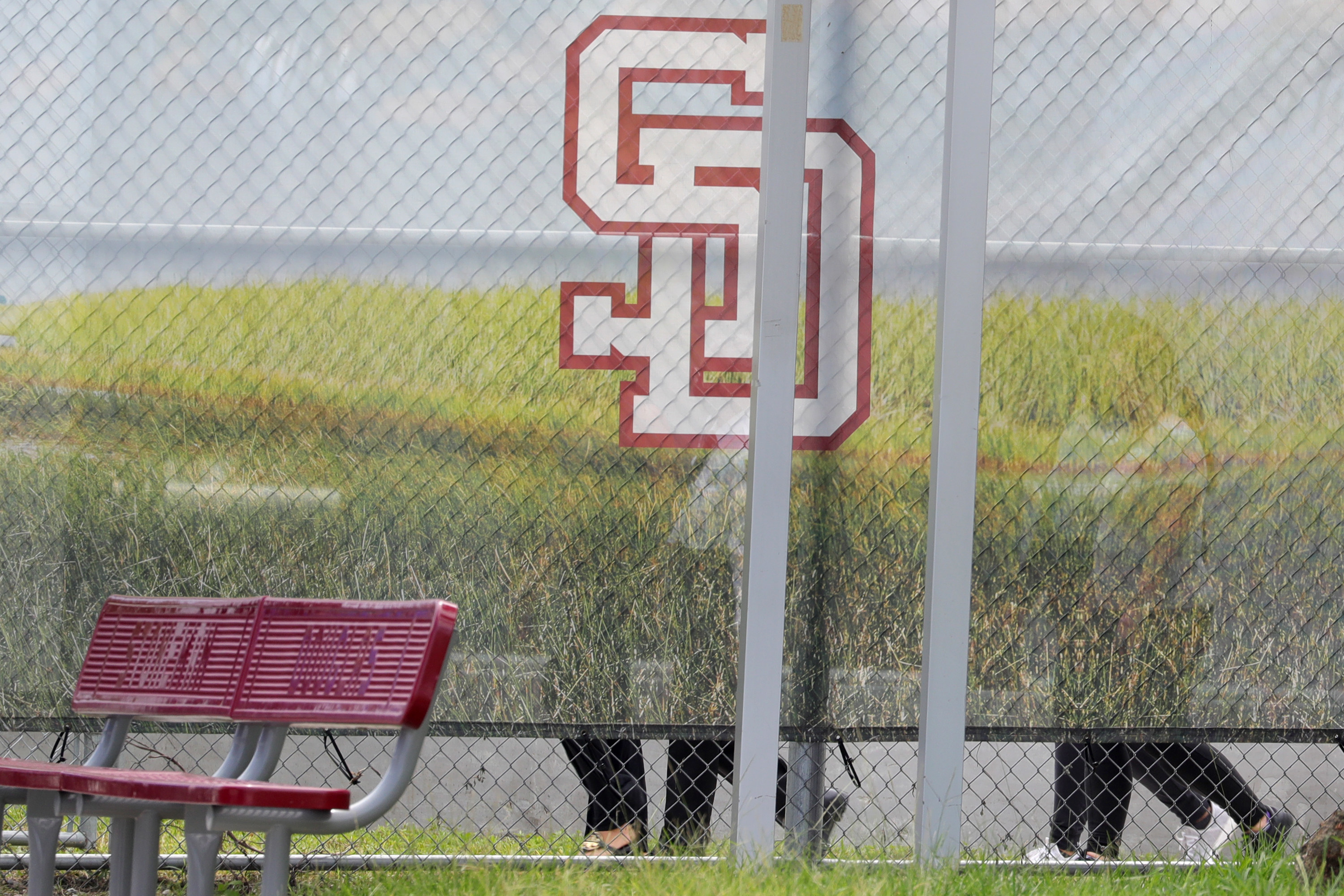
More than four years after he stalked the halls of Marjory Stoneman Douglas High School in Parkland, Florida, killing 17 students and staff, the gunman has learned his fate.
A jury on Thursday delivered its verdict in the monthslong death penalty trial in Fort Lauderdale: Nikolas Cruz is to be spared execution. Instead, he will spend the rest of his life in prison.
Cruz sat mostly silent alongside his defense attorneys as Circuit Judge Elizabeth Scherer read verdict forms for the 17 murder charges related to each of the victims.
In each count, the jury indicated they found there were sufficient aggravating factors — including that Cruz acted in a "cruel, cold, calculated, and premeditated manner" to commit "especially heinous, atrocious, or cruel" murders — but that these were not enough to overcome the mitigating circumstances in order to justify the death penalty. Defense attorneys had argued these mitigating factors included Cruz's psychiatric state and his birth mother's extensive alcohol and drug use while pregnant, which they said caused him to have fetal alcohol syndrome.
In the packed courtroom on Thursday, family members of the victims held hands and wiped away tears as the verdict was read. Some shook their heads in anger or disbelief, others sat with their eyes closed, looking crushed.
First, though, here are the names of those Cruz unilaterally decided should die: Alyssa Alhadeff, 14; Scott Beigel, 35; Martin Duque Anguiano, 14; Nicholas Dworet, 17; Aaron Feis, 37; Jaime Guttenberg, 14; Christopher Hixon, 49; Luke Hoyer, 15; Cara Loughran, 14; Gina Montalto, 14; Joaquin Oliver, 17; Alaina Petty, 14; Meadow Pollack, 18; Helena Ramsay, 17; Alexander Schachter, 14; Carmen Schentrup, 16; and Peter Wang, 15.
Thursday’s verdict ends what has been an exceptionally rare trial in the US, given that most people who commit mass shootings end up taking their own lives or being killed by police. It will also no doubt divide the grieving family members of the Parkland victims, a few of whom were against Cruz being executed.
Cruz’s culpability for the massacre was never in doubt, with him having pleaded guilty a year ago to 17 counts of premeditated murder and 17 counts of attempted murder for those he wounded.
Instead, the panel of 12 jurors and 10 alternates chosen in the trial were tasked with deciding whether Cruz, now 24, would live or die. A unanimous verdict was necessary in order for the death penalty to apply.

Once the trial began in July, jurors were presented with autopsy reports that explained in graphic detail how Cruz’s weapon blew apart his victims during the 2018 Valentine’s Day shooting. They watched school surveillance footage of the seven-minute attack that showed the gunman killing indiscriminately, sometimes stopping over writhing bodies to shoot them again and again. And they visited the preserved crime scene, where pools of blood still remain alongside notebooks open on classroom desks that were left by those who fled or were killed.
Witness after witness was called to testify about the unimaginable terror they experienced. Teachers took the stand to describe watching their students die, and vice versa. Those wounded by bullets spoke about how their bodies had been torn apart. Relatives and friends of every single victim shared their unending grief in heart-wrenching testimony that brought tears to the jury and even the defense lawyers.
“I lost innocence,” said Tori Gonzalez, Joaquin Oliver’s girlfriend. “I lost purity. I lost the love letters he was writing for me in that fourth-period creative writing class.”
“She never got her braces off,” said Meghan Petty, the sister of Alaina Petty. “She never got her first kiss.”
“Aaron isn’t here to give his fatherly guidance and advice,” said Melissa Feis, widow of assistant football coach Aaron Feis. “It’s heartbreaking and unimaginable at times. And yet, it’s my reality.”

Arguing for the death penalty, lead prosecutor Mike Satz described the gunman’s rampage as a “systemic massacre” that was extensively planned for years, with Cruz having hoarded ammunition and magazines, researched previous mass shootings, and even searched online for how long it typically takes law enforcement to respond. He’d chosen Valentine’s Day specifically because he felt no one loved him, so he wanted to ruin the day for others forever.
“It was goal-directed,” Satz said in his final remarks on Tuesday. “It was calculated. It was purposeful.”
In closing arguments, prosecutors again read from online writings Cruz had penned in which he’d outlined his fantasies of killing. Then they detailed how he’d come to satisfy those dark desires through slaughter.
In a particularly harrowing moment that prompted one victim’s sobbing mother to leave the courtroom, Satz used his closing remarks to again remind the jury how each and every one of the 17 victims was killed in excruciating, bloody detail.

Cruz’s defense team had built their case not by arguing that there was any excuse or justification for his murder spree, but instead by trying to paint a portrait of a highly damaged young man who was “poisoned in the womb” by fetal alcohol syndrome due to his mother’s extensive drug and alcohol use while she was pregnant and experiencing homelessness.
Experts, psychologists, and Cruz’s half-siblings and former teachers were called to testify, describing how his violent behavior had started when he was a toddler — testimony that prosecutors sought to undercut by suggesting Cruz was purposefully doing poorly on cognitive tests in order to spare himself from execution.
“Sentencing Nikolas to death will literally serve no purpose at all other than vengeance,” lead defense attorney Melisa McNeill told the jury in her closing remarks on Tuesday.
“You will never regret voting for life,” she said. “You can show Nicholas Cruz all the things that he did not show the 17 victims. You can show him the things that he least deserves: compassion, grace, and mercy.”
“I now put in your hands his life,” she said.
